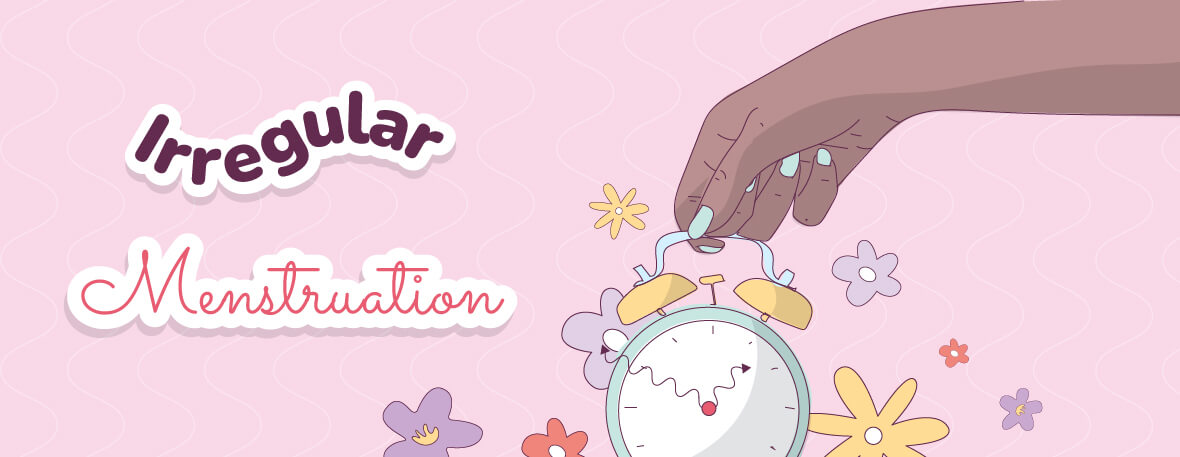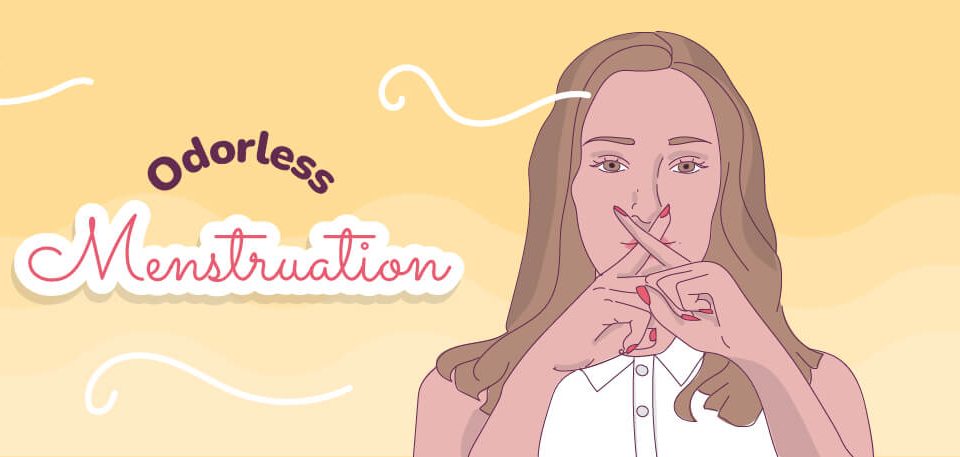 Store
StoreRECOMMENDED PRODUCT
Uva Menstrual Cup
Ultra-soft silicone for your comfort and peace of mind.
$29.99

 How to use the cup
How to use the cup- FAQ
- Blog
 Store
StoreRECOMMENDED PRODUCT
Uva Menstrual Cup
Ultra-soft silicone for your comfort and peace of mind.
$29.99

 How to use the cup
How to use the cup- FAQ
- Blog

Irregular Periods
One of the things that worries women a lot is when their period is irregular, not only because it is inconvenient not to know when they will have it, but also because they do not know if their health is in good order. Irregular periods are usually accompanied by other symptoms, which makes it more than just a time problem.
Introduction to Irregular Periods
Irregular menstruation is a common concern among women of reproductive age. This term refers to variations in the menstrual cycle that differ from a person’s usual pattern. Understanding the causes and knowing when to seek medical help is crucial to a woman’s reproductive and overall health. In this guide, we will explore this topic in-depth, offering a comprehensive overview and practical advice.
Irregularities can manifest in a variety of ways, including cycles that are too long or short, too much or too little bleeding, and the complete absence of menstruation. Every woman experiences her cycle uniquely, and small variations are normal; however, significant changes may be indicative of underlying problems that require attention.
Factors That Influence Period Regularity
Hormonal Aspects
Hormones play a central role in regulating the menstrual cycle. Hormonal imbalances, such as those caused by polycystic ovary syndrome (PCOS), can cause irregular periods. Other conditions, such as hypothyroidism or hyperprolactinemia are also associated with menstrual irregularities.
It is important to consider that natural hormonal fluctuations, such as those that occur during puberty or perimenopause, can cause changes in the cycle. During these periods, the body goes through adjustments that can affect menstrual regularity.
Lifestyle and Environmental Factors
Lifestyle has a significant impact on menstruation. Stress, both physical and emotional, can alter hormonal production and, therefore, the menstrual cycle. Extreme physical activity and eating disorders such as anorexia or bulimia are also known factors that affect menstrual regularity.
Body weight is another influential element; Both overweight and underweight can cause irregularities. It is essential to maintain a balanced lifestyle to promote a regular menstrual cycle.
Diagnosis and Treatment of Irregular Periods
Medical Consultations and Exams
In the presence of menstrual irregularities, it is essential to consult with a health professional. A doctor can perform a complete evaluation, including a medical history, physical examination, and diagnostic tests such as blood tests, ultrasounds, or, in some cases, laparoscopy.
Treatment will depend on the underlying cause. In some cases, lifestyle or diet changes may be enough. In others, medications such as hormonal contraceptives may be necessary or, for conditions such as PCOS, specific medications that help regulate the cycle.
Natural Remedies and Alternatives
Some women find relief in natural remedies and alternative therapies. Medicinal plants such as Vitex Agnes-castus (chasteberry) have been studied for their potential to regulate hormones and improve menstrual regularity. However, it is crucial to consult with a professional before starting any natural treatment to avoid interactions and unwanted side effects.
Acupuncture, and relaxation techniques can also be beneficial for managing stress and improving irregular menstruation. These complementary therapies can be an excellent addition to a comprehensive treatment plan.
Tips for Managing Irregular Menstruation
Keeping a menstrual log can be a valuable tool for identifying patterns and possible triggers for irregularities. Understanding your own body and being proactive in seeking professional help are important steps toward effectively managing irregular menstruation.
Reproductive health education is essential. Knowing how the body works and the factors that affect menstruation allows women to make informed decisions about their health and well-being.
Conclusion and Next Steps
Irregular menstruation is a condition that can be successfully managed by combining a thorough understanding of its causes, an accurate diagnosis, and appropriate treatment. Collaboration between the patient and health professionals is key to finding the most effective solution for each case.











